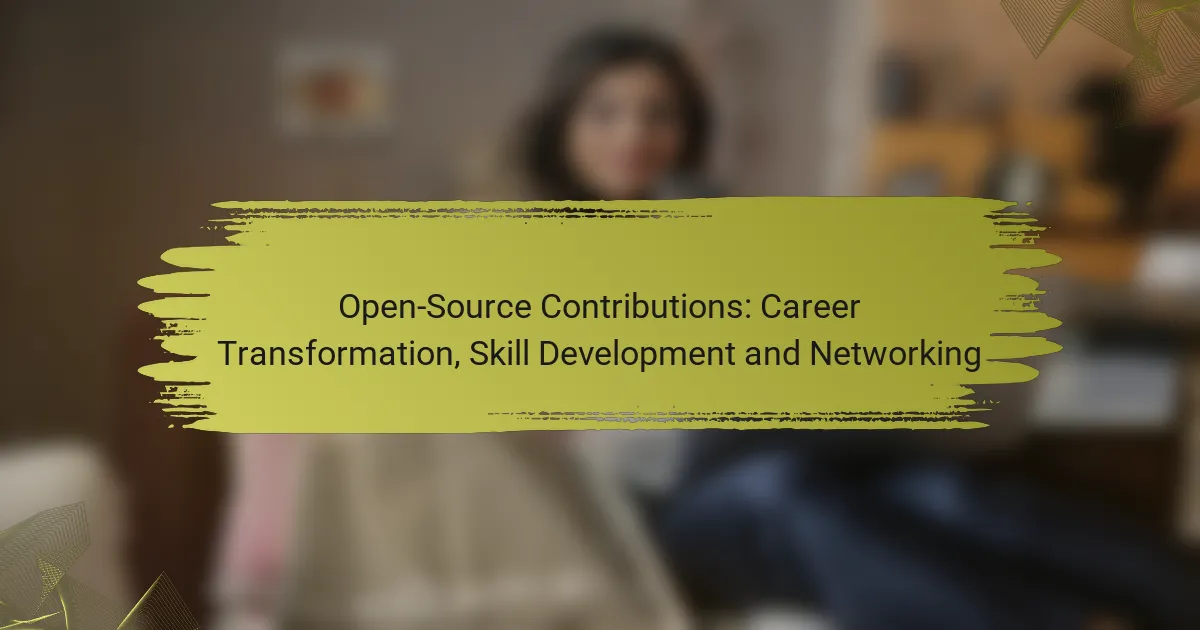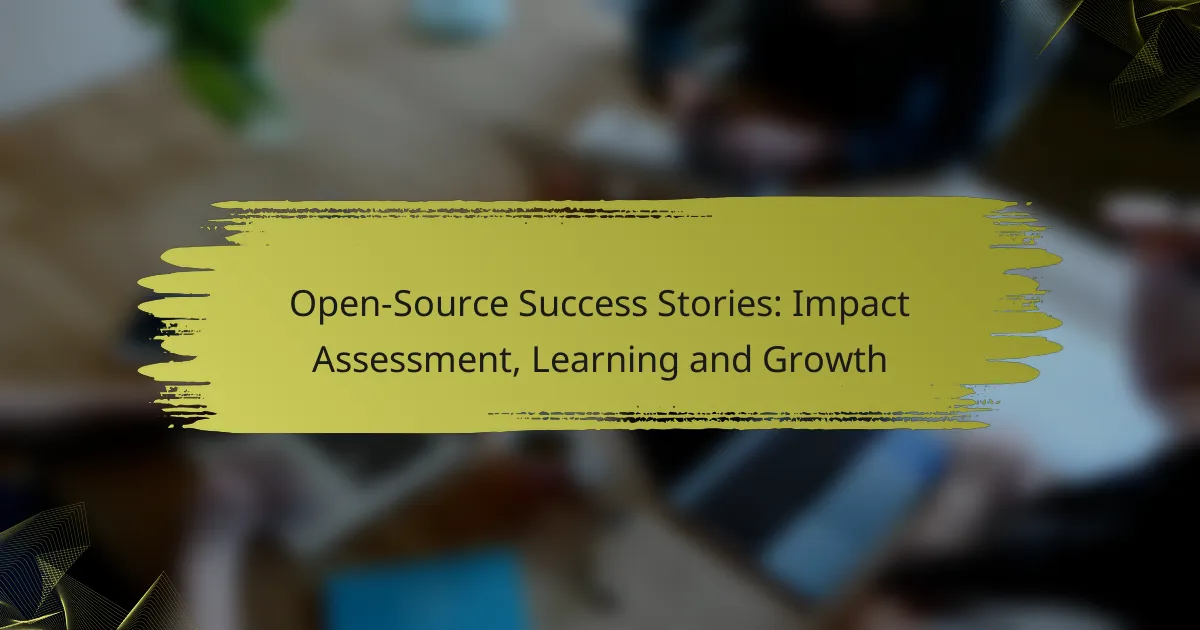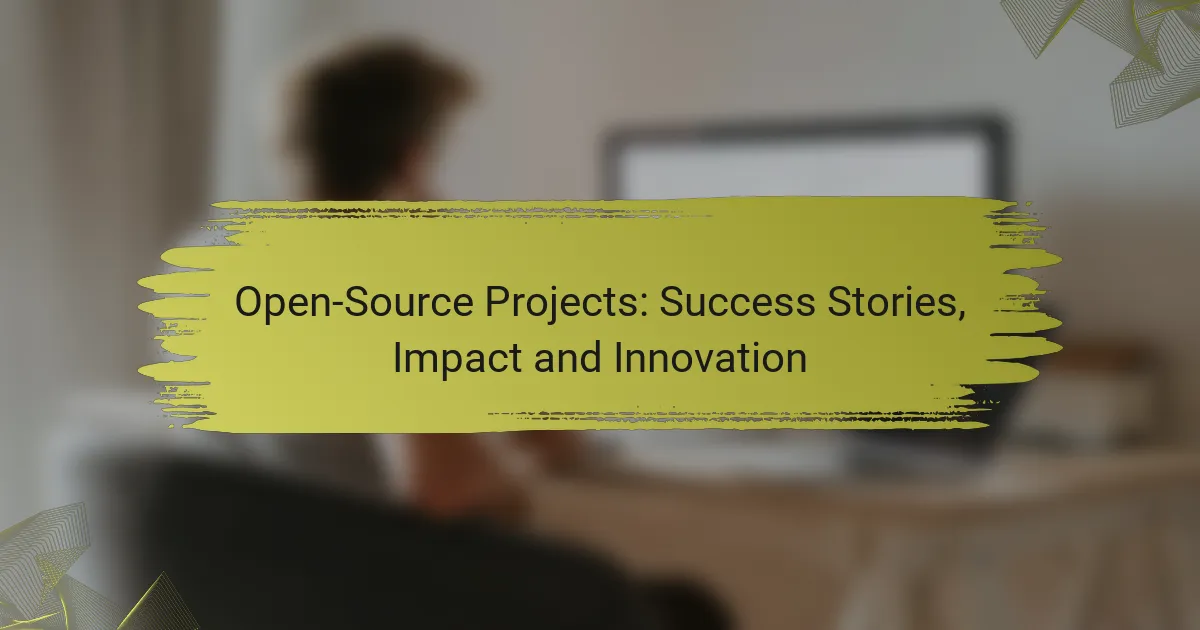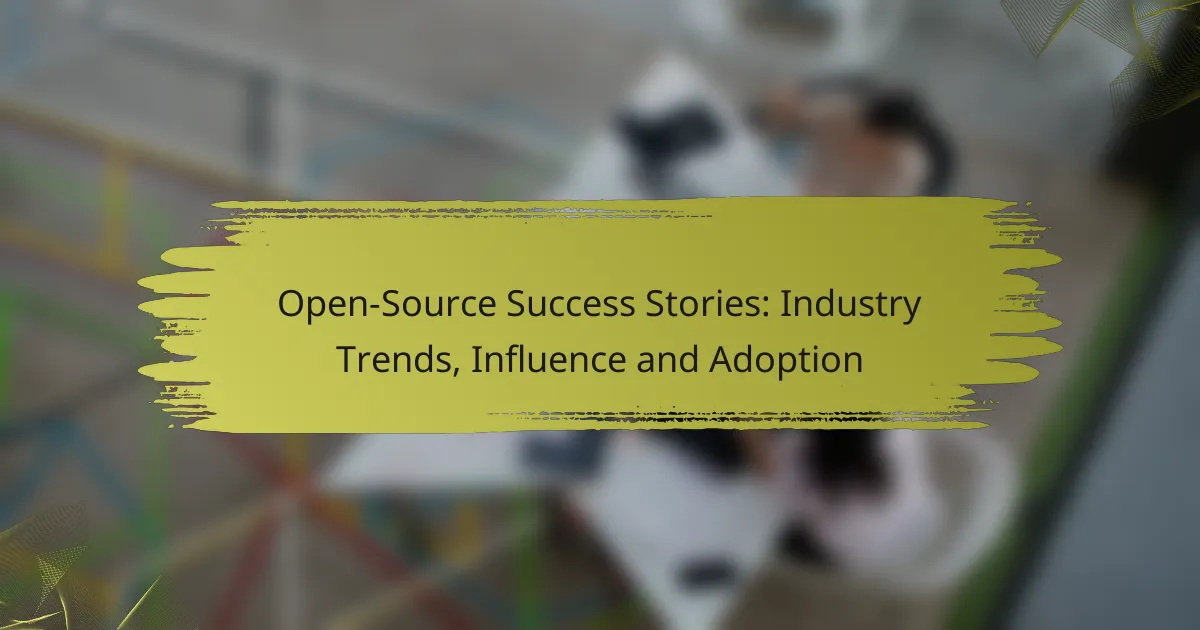Open-source contributions offer a unique opportunity to transform your career by providing hands-on experience and expanding your professional network. By actively participating in projects, you can develop both technical and interpersonal skills that are highly sought after in the job market, ultimately increasing your visibility to potential employers. Engaging with the open-source community not only showcases your commitment to continuous learning but also opens doors to new job opportunities and career advancement.
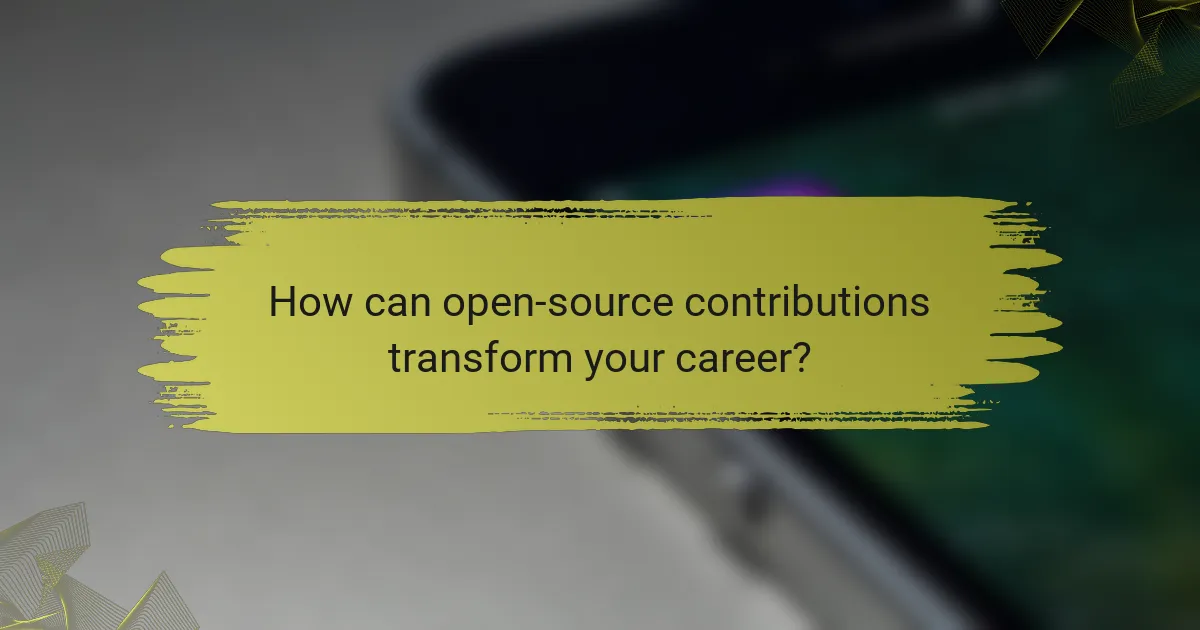
How can open-source contributions transform your career?
Open-source contributions can significantly enhance your career by providing practical experience, expanding your professional network, and increasing your visibility to potential employers. Engaging in open-source projects allows you to showcase your skills and commitment to continuous learning, which can lead to new job opportunities and career advancement.
Increased job opportunities
Contributing to open-source projects can open doors to numerous job opportunities. Many companies actively seek candidates who have demonstrated their skills through real-world contributions, as it reflects both technical proficiency and teamwork. Engaging in these projects can lead to job offers directly from companies looking for talent.
Additionally, participating in open-source communities can help you discover job openings that may not be advertised publicly. Networking within these communities often leads to referrals, which can significantly increase your chances of landing a position.
Enhanced resume credibility
Including open-source contributions on your resume can enhance its credibility and make you stand out to hiring managers. It demonstrates your ability to work collaboratively and contribute to meaningful projects, showcasing your skills in a practical context. Employers often view this experience as a testament to your dedication and expertise.
To maximize the impact, clearly outline your contributions, including specific projects and technologies used. Highlight any leadership roles or significant achievements within those projects to further strengthen your resume.
Access to industry networks
Open-source contributions provide access to a vast network of professionals in your field. Engaging with other contributors can lead to valuable connections, mentorship opportunities, and insights into industry trends. These relationships can be beneficial for career growth and collaboration on future projects.
Participating in conferences, meetups, and online forums related to your contributions can further expand your network. Actively engaging with these communities helps you stay informed about job opportunities and industry developments.
Skill diversification
Contributing to open-source projects allows you to diversify your skill set by working on various technologies and methodologies. This hands-on experience can help you learn new programming languages, frameworks, and tools that are in demand in the job market. It also encourages you to adapt to different coding styles and project management approaches.
To effectively diversify your skills, consider contributing to projects outside your comfort zone. This not only broadens your expertise but also demonstrates your willingness to learn and grow, making you a more attractive candidate to potential employers.
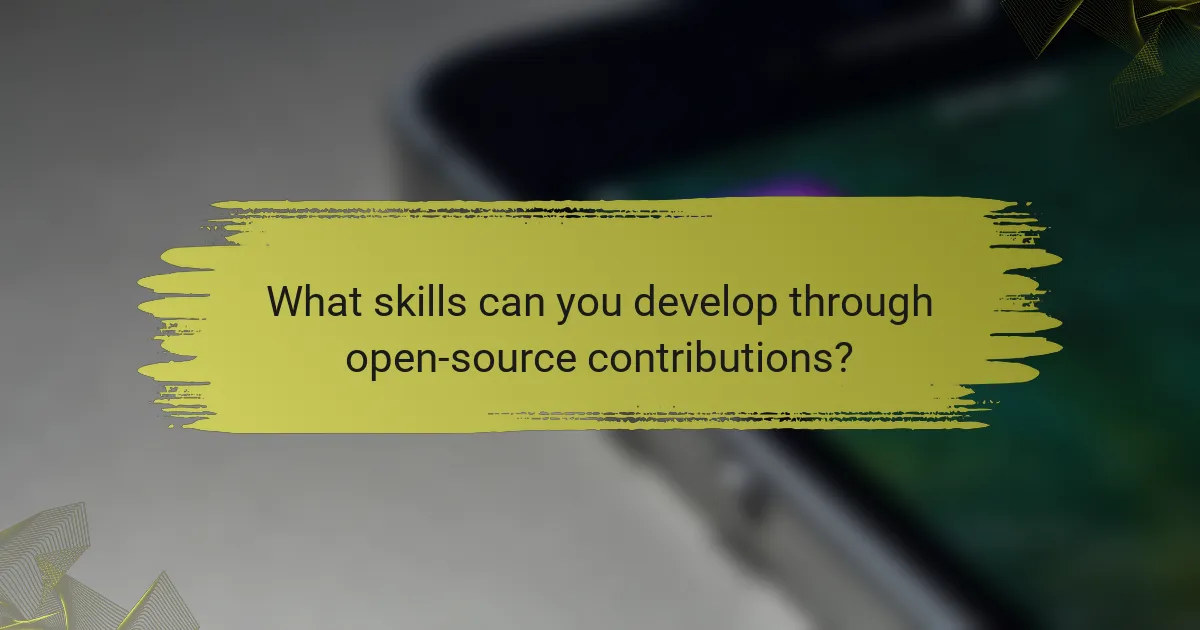
What skills can you develop through open-source contributions?
Open-source contributions can significantly enhance your technical and interpersonal skills, making you a more competitive candidate in the job market. By engaging with various projects, you can gain practical experience and knowledge that are highly valued in the tech industry.
Programming languages proficiency
Contributing to open-source projects allows you to work with multiple programming languages, enhancing your proficiency in each. Common languages include Python, JavaScript, Java, and Ruby, among others. You can choose projects that align with your interests or career goals to deepen your expertise in specific languages.
Start by exploring repositories on platforms like GitHub to find projects that interest you. Aim to contribute to projects that have active communities, as this will provide you with guidance and feedback to improve your coding skills.
Version control systems expertise
Open-source contributions typically involve using version control systems, primarily Git. Mastering Git is essential for tracking changes, collaborating with others, and managing project versions effectively. Familiarity with commands like commit, push, pull, and merge will become second nature as you contribute more.
To build your expertise, practice by creating your own repositories and collaborating with others. Understanding branching strategies and resolving merge conflicts will also enhance your ability to work in teams and manage codebases efficiently.
Collaboration and communication skills
Working on open-source projects requires effective collaboration and communication with diverse teams. You will learn to articulate your ideas clearly, provide constructive feedback, and resolve conflicts amicably. These skills are crucial in any workplace environment.
Engage in discussions on platforms like Slack or Discord, and participate in code reviews to practice your communication skills. Being open to feedback and willing to help others will further strengthen your collaborative abilities.
Project management capabilities
Contributing to open-source projects often involves managing tasks, timelines, and deliverables, which can enhance your project management skills. You will learn to prioritize tasks, set deadlines, and track progress, all of which are valuable in any professional setting.
Consider using project management tools like Trello or Jira to organize your contributions. Familiarizing yourself with Agile methodologies can also be beneficial, as many open-source projects adopt these practices to streamline their workflows.
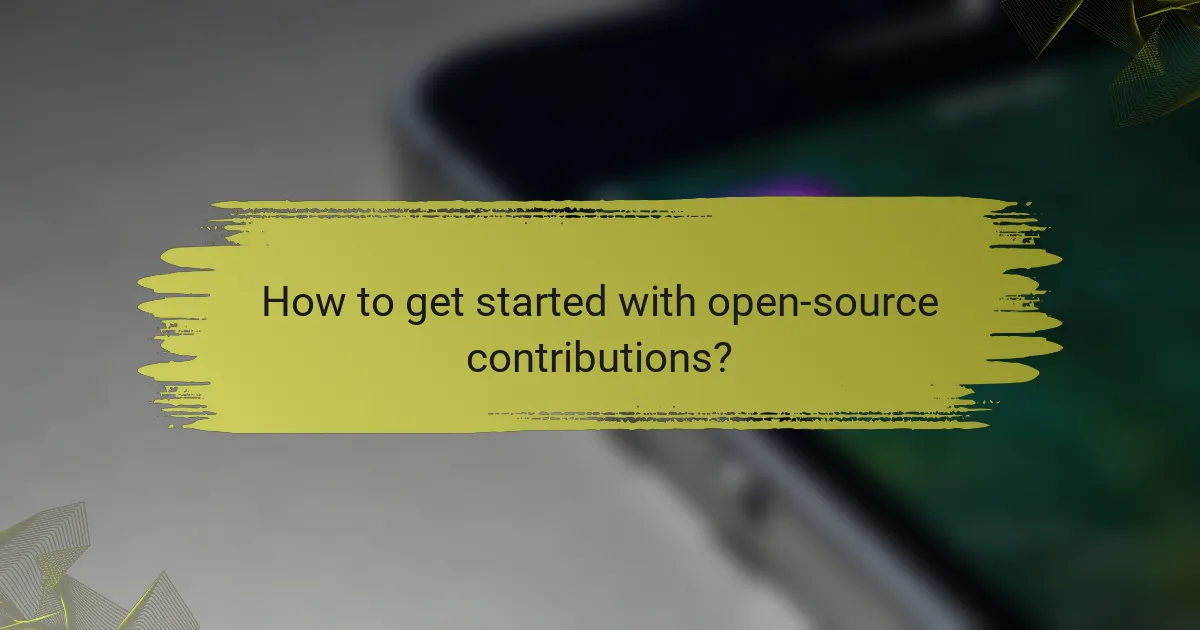
How to get started with open-source contributions?
Getting started with open-source contributions involves identifying your interests, selecting a platform, finding suitable projects, and engaging with the community. This process can significantly enhance your skills and expand your professional network.
Identify your interests
To begin your journey in open-source contributions, first pinpoint the areas that excite you. Consider your current skills and the technologies you enjoy working with, such as web development, data science, or mobile applications.
Reflect on your personal projects or hobbies that could align with open-source initiatives. This alignment will keep you motivated and make your contributions more meaningful.
Choose a platform like GitHub
Selecting a platform is crucial for your open-source journey, with GitHub being the most popular choice. It provides a user-friendly interface for managing projects, tracking issues, and collaborating with other developers.
Other platforms like GitLab and Bitbucket also offer similar functionalities, but GitHub’s extensive community and resources make it a preferred starting point. Create an account and familiarize yourself with its features to maximize your contributions.
Find beginner-friendly projects
Look for projects labeled as “beginner-friendly” or “good first issue” on platforms like GitHub. These projects often have clear guidelines and are welcoming to newcomers.
Consider exploring repositories that match your interests and skill level. Websites like Up For Grabs and First Timers Only curate lists of projects specifically designed for beginners, making it easier to find suitable opportunities.
Engage with the community
Active participation in the open-source community is essential for growth and networking. Join forums, mailing lists, or chat channels related to your chosen projects to connect with other contributors.
Don’t hesitate to ask questions or seek feedback on your contributions. Engaging with experienced developers can provide valuable insights and help you improve your skills over time.
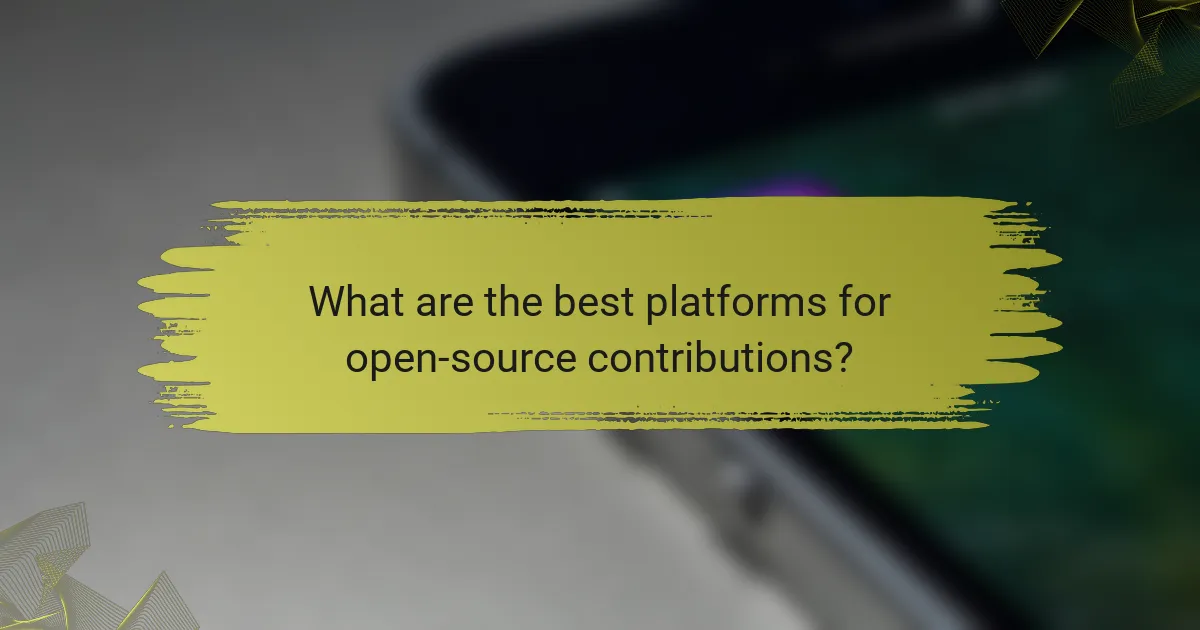
What are the best platforms for open-source contributions?
The best platforms for open-source contributions include GitHub, GitLab, Bitbucket, and SourceForge. Each platform has unique features that cater to different needs, making them suitable for various types of projects and contributors.
GitHub
GitHub is the most popular platform for open-source contributions, hosting millions of projects across various domains. It offers a user-friendly interface, robust version control, and a vast community, making it easy for developers to collaborate and contribute.
To get started on GitHub, create an account and explore repositories that interest you. Look for issues labeled as “good first issue” to find beginner-friendly tasks. Engaging with the community through discussions and pull requests can enhance your experience.
GitLab
GitLab is another strong contender, known for its integrated CI/CD tools and comprehensive project management features. It allows contributors to manage the entire software development lifecycle within a single platform.
When using GitLab, take advantage of its built-in issue tracking and merge request features. This can streamline collaboration and help you keep track of your contributions effectively. GitLab also offers free private repositories, which can be beneficial for personal projects.
Bitbucket
Bitbucket is particularly favored by teams using Atlassian products, as it integrates seamlessly with tools like Jira and Trello. It supports both Git and Mercurial repositories, catering to a wider range of developers.
To make the most of Bitbucket, consider using its pull request feature to facilitate code reviews. This can improve code quality and foster collaboration among team members. Bitbucket also offers free private repositories, making it a good choice for small teams.
SourceForge
SourceForge has been a long-standing platform for open-source projects, providing tools for project management, bug tracking, and version control. While it has seen a decline in popularity, it still hosts many legacy projects and offers a straightforward interface.
For contributors, SourceForge can be a good option for finding older projects that may need maintenance or updates. Be sure to check the activity level of a project before contributing, as some may be inactive or have limited community engagement.
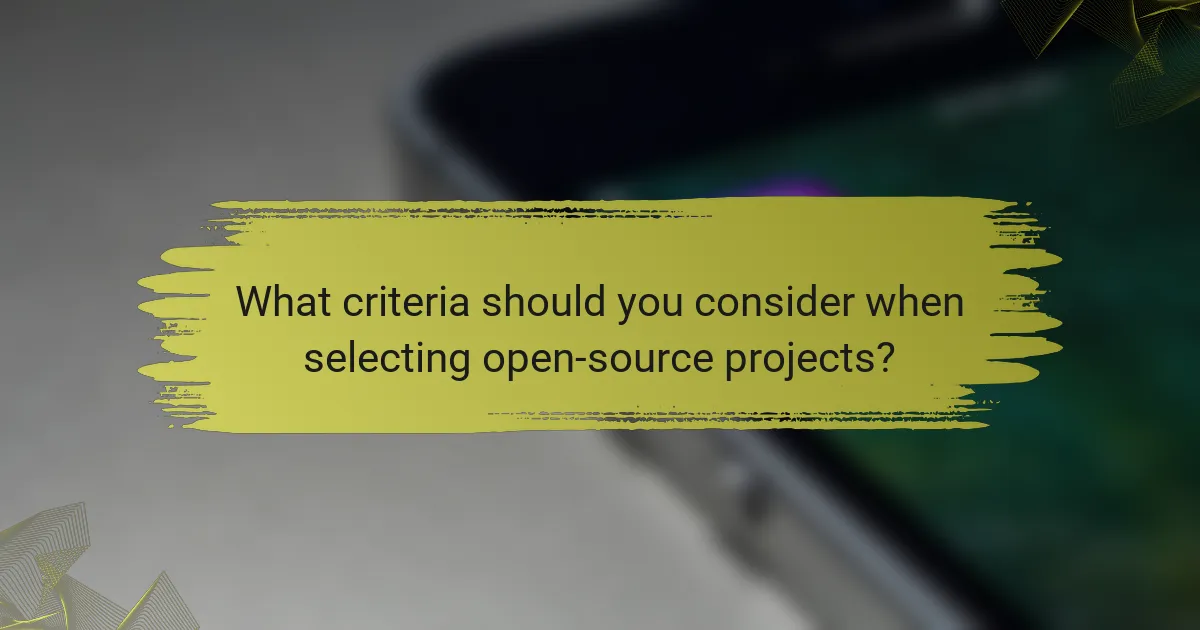
What criteria should you consider when selecting open-source projects?
When selecting open-source projects, consider factors such as project activity, maintenance, community engagement, and alignment with your skills and interests. These criteria will help ensure a rewarding contribution experience and enhance your professional growth.
Project activity and maintenance
Assessing project activity and maintenance is crucial for selecting open-source projects. Look for projects with regular commits, active discussions, and recent releases, as these indicators suggest a healthy and engaged community. A project that is frequently updated is more likely to provide ongoing learning opportunities and support.
Check the project’s repository for metrics like the number of contributors, open issues, and pull requests. A project with a high number of contributors and active issue resolution typically indicates a vibrant ecosystem. Aim for projects that have a consistent update schedule, ideally with releases every few months.
Additionally, consider the project’s documentation and onboarding process. Well-maintained projects often have clear guidelines for new contributors, making it easier for you to get involved. Look for projects that provide a welcoming environment, as this can significantly enhance your contribution experience.
